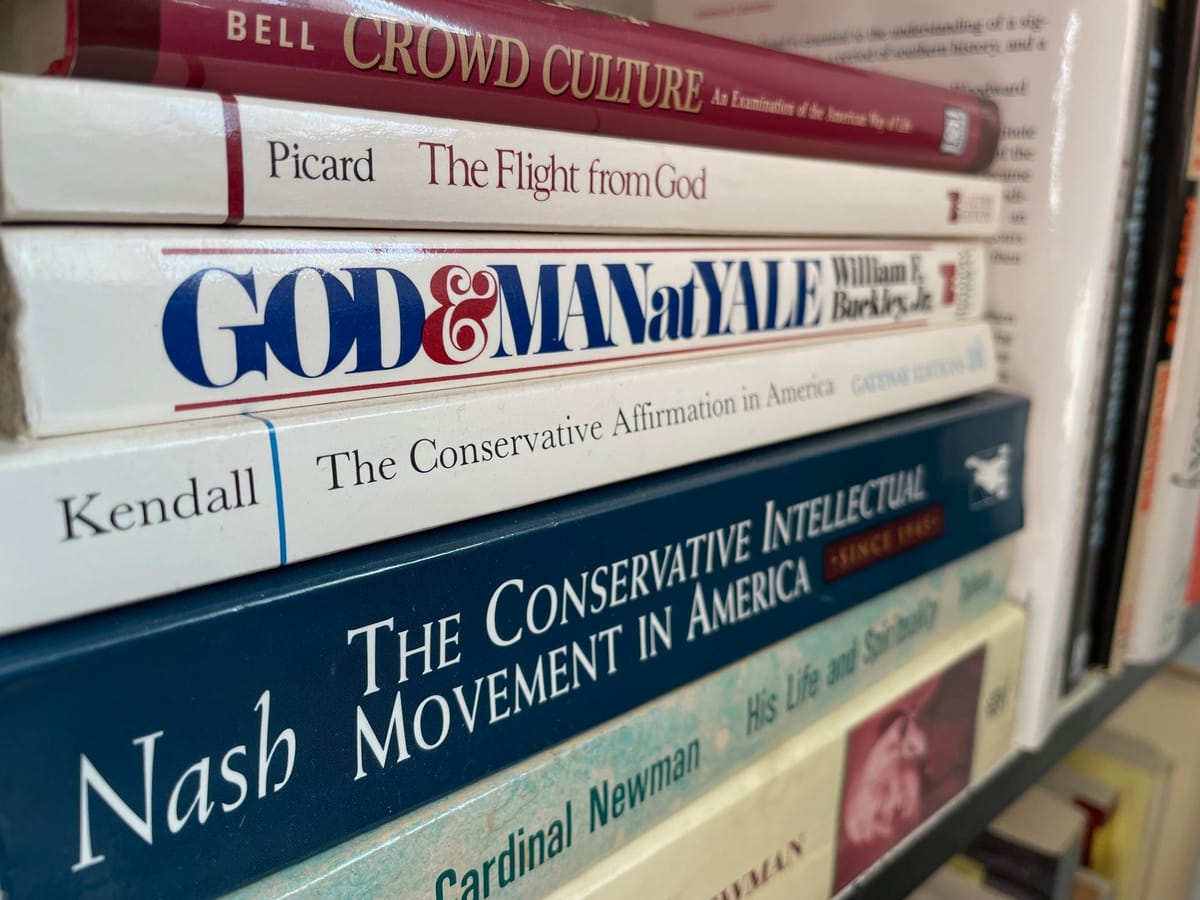The Quest for Community at 70
Brad Birzer at University Bookman

1953 was an annus mirabilis for the conservative movement. Russell Kirk published The Conservative Mind, Leo Strauss published Natural Right and History, Ray Bradbury published Fahrenheit 451, T.S. Eliot published The Confidential Clerk, Daniel Boorstin published The Genius of American Politics, Richard Weaver published The Ethics of Rhetoric, and Robert Nisbet published The Quest for Community. The year before had seen C.S. Lewis’s Mere Christianity, Eric Voegelin’s New Science of Politics, Gabriel Marcel’s Man Against Mass Society, Christopher Dawson’s Understanding Europe, as well as Whittaker Chambers’s Witness. The year after would see Kirk’s Program for Conservatives, J.R.R. Tolkien’s The Fellowship of the Ring and The Two Towers, Romano Guardini’s The Lord, and Dawson’s Medieval Essays.
Far from being marginalized by the deluge of non-leftist works, Robert Nisbet’s Quest for Community had pride of place, being well-received at the time of its release as well as in subsequent editions. In public and private, Kirk praised it as one of the most important books of a generation, T.S. Eliot also thought it was critical, and even major periodicals took it seriously. Amazingly enough, the book transcended mere political differences in the polarized period, and both the New Left and the young conservatives of the 1960s embraced Nisbet. Indeed, he became nothing less than a celebrity to both. Nisbet, though, was firmly on the side of the young conservatives, the so-called “New Conservatives” of his era.
To be sure, The Quest for Community is a stunning book, encompassing history, sociology, political philosophy, and ethics and revealing Nisbet’s vast breadth of knowledge and wisdom. Much of the book came from his U-C Berkeley dissertation of the late 1930s written under the direction and supervision of Frederick Teggart, but much of it had also come from fourteen years of additional thought and classroom teaching, 1940-1953.
In Quest, Nisbet channels Edmund Burke and Alexis de Tocqueville, several late nineteenth-century anarchists, as well as the twentieth-century man of letters, Albert Jay Nock, while always and deeply challenging such modern western stalwarts as Thomas Hobbes and Jean-Jacques Rousseau.
While deep in a variety of ways, The Quest for Community offers a discernible, if exceedingly complex, line of thought regarding the nature of humanity and the communities we form to maintain stability, order, and freedom. State, nation, and totalitarianism, as Nisbet saw it, challenged association and voluntary community.
Nisbet feared the most prominent institution of the modern world was the modern nation state. Metastasized, it predominated over everything else. “I believe that the greatest single influence upon social organization in the modern West has been the developing concentration of function and power of the sovereign political State.” Indeed, Nisbet continues, “to regard the State as simply a legal relationship, as a mere superstructure of power, is profoundly delusive.” Rather, Nisbet insists, “the real significance of the modern State is inseparable from its successive penetrations of man’s economic, religious, kinship, and local allegiances and its revolutionary dislocations of established centers of function and authority.” In other words, the modern State had insinuated itself into every aspect of its citizens’ lives. This was just as true in the United States as it had been in Nazi Germany or Soviet Russia. Democracy, as Nisbet imagined it, was not the opposite of fascism and communism, but, in its essence, possibly as totalitarian as either, just in a kinder, more gentle fashion. Still, in any modern form, the State’s reach was unstoppable. “For in most countries, including the United States, it is the political relationship that has been and is being enhanced above all other forms of connection among individuals.” As such, the modern state has displaced or replaced such traditional associations as family, church, voluntary society, school, and local community. Further, such penetration and interpenetration by the state shows no sign of slowing down. Quite apart from the innumerable agencies of private welfare, the whole tendency of modern political development has been to enhance the role of the political State as a direct relationship among individuals, and to bring both its powers and its services ever more intimately into the lives of human beings.”
The State, then, forms relationships that are both horizontal and vertical. The State, in its modern form, most closely resembles the Medieval church in its “complex of ideas, symbols, and relationships” as well as in its struggle against division, “the State has risen as the dominant institutional force in our society and the most evocative symbol of cultural unity and purpose.” Again, one is forcibly reminded of such medieval notions as the Economy of Grace, the Great Chain of Being, and, most importantly, the grand medieval synthesis of Dante.
